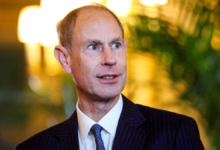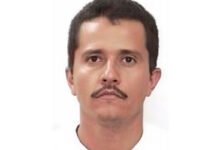Over 1,000 dead as Afghans dig for quake survivors

Rescuers are digging for survivors of a powerful earthquake that flattened whole villages in Afghanistan, killing more than 1,000 people.
The 6.3-magnitude quake struck on Saturday morning in Herat province, a barren landscape dotted with mud brick homes.
Villagers are still using shovels and bare hands to search for more than 500 people missing, the UN says.
Aid, delayed by blocked routes and communication lines being down, only started to trickle in on Monday.
There are fears the death toll could be much higher.
The quake hit Zindajan, a rural district some 40km (25 miles) from Herat city, where “100% of homes are estimated to have been completely destroyed,” according to the UN Office for the Coordination of Humanitarian Affairs (OCHA).
Images from the villages show entire houses, which were too fragile to withstand such a quake, reduced to rubble.
“We came home and saw there was nothing left. Everything had turned to mud,” one resident, Nek Mohammad, told AFP news agency. “We started to dig with shovels and whatever we had to rescue women and children from the rubble.”
The Taliban government and aid agencies initially struggled to estimate the death toll, or how many remained missing. It’s unlikely officials had population records for such remote villages.
The area is also home to communities displaced by war and drought, making it difficult for the local administration to know exactly how many people have been living there.
ll-equipped hospitals have been struggling to accommodate the injured, who now number more than 1,600. Many of them were sent to the Herat Regional Hospital, where teams from the medical charity Médecins Sans Frontières (MSF) have been since Saturday.
“Fortunately, most of the patients arriving are non-emergency cases,” says Prue Coakley, the acting country representative for MSF in Afghanistan. “However, many of them do not have homes to return to, that is why many of them are remaining in the hospital while authorities look for alternative places for them to stay.”
She added that a team focused on paediatric patients had been sent to the hospital in Herat. The UN says a majority of the quake survivors who are being treated are women and children, while doctors tell the BBC women and children also account for many of the dead.
—BBC






